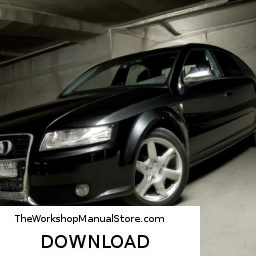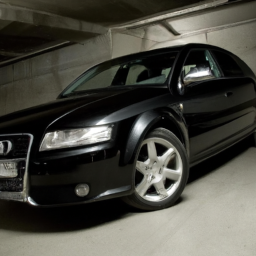
Repairing the suspension spring seat on an Audi S4 involves several steps and requires a good understanding of automotive suspension systems. go here for more details on the download manual…..
- 034 Motorsport Ignition Coils & NGK Spark Plugs – Audi B9 S4 – EA839 Engines Today I installed 034 Motorsport red top high output ignition coils and some fresh OEM NGK spark plugs gapped to 0.022″.
- 2024 Audi S4 – DM Review | Test Drive The Audi S4 has been around for longer than most cars on the market today in 2024. Its market is limited, but for the right buyer, …
Below, I will detail the components you’ll need and the step-by-step process for performing this repair.
### Tools and Materials Needed:
1. **Tools:**
– Jack and jack stands
– Wheel chocks
– Socket set (including deep sockets)
– Wrench set
– Torque wrench
– Spring compressor
– Hammer
– Pry bar
– Pliers
– Screwdrivers
– Impact wrench (optional)
2. **Replacement Parts:**
– New spring seat (or mount)
– New strut assembly (if needed)
– New strut bearing (if applicable)
– New nuts and bolts (OEM recommended)
– New bump stop (if needed)
– New dust cover (if applicable)
3. **Safety Gear:**
– Safety glasses
– Gloves
### Step-by-Step Repair Instructions:
#### 1. Preparation
– **Safety First:** Park the Audi S4 on a level surface, engage the parking brake, and place wheel chocks behind the rear tires.
– **Gather Tools and Parts:** Have all tools and parts ready before starting the repair.
#### 2. Lift the Vehicle
– **Jack Up the Car:** Use a jack to lift the front of the vehicle. Place jack stands under the appropriate points on the frame to secure the vehicle.
– **Remove the Front Wheel:** Use a socket or impact wrench to remove the lug nuts and take off the front wheel.
#### 3. Remove the Strut Assembly
– **Disconnect the Brake Line:** If necessary, unbolt the brake line from the strut to avoid stress on the line.
– **Remove the Strut Top Nut:** Open the hood and locate the top strut mount in the engine compartment. Use a socket to remove the nut holding the strut in place. Hold the strut shaft with a wrench to prevent it from spinning.
– **Unbolt the Strut from the Knuckle:** At the bottom of the strut, there are typically two or three bolts holding the strut to the steering knuckle. Remove these bolts.
– **Remove the Strut Assembly:** Carefully pull the strut out of the knuckle and remove it from the vehicle. Be cautious of any remaining components attached.
#### 4. Compress the Spring
– **Use a Spring Compressor:** Place the spring compressor on the coil spring, making sure it is evenly spaced. Tighten the compressor according to the manufacturer’s instructions to relieve tension on the spring.
#### 5. Remove the Spring Seat
– **Take Off the Top Nut:** Once the spring is compressed, remove the top nut from the strut mount. This will allow you to take off the strut bearing and spring seat.
– **Remove the Spring and Seat:** Carefully remove the spring from the strut, followed By the old spring seat. Inspect the spring seat for cracks or wear.
#### 6. Install the New Spring Seat
– **Place the New Spring Seat:** Fit the new spring seat onto the strut assembly. Ensure it is properly aligned.
– **Install the Spring:** Place the coil spring back onto the strut assembly, making sure it is seated correctly in the new spring seat.
– **Reattach the Strut Bearing:** If applicable, place the strut bearing back on top of the spring, followed By the top nut. Tighten the nut securely.
#### 7. Reassemble the Strut and Vehicle
– **Decompress the Spring:** Carefully decompress the spring using the spring compressor until the spring is fully seated.
– **Reinstall the Strut Assembly:** Insert the strut back into the steering knuckle and secure it with bolts. Torque them to the manufacturer’s specifications.
and secure it with bolts. Torque them to the manufacturer’s specifications.
– **Reattach the Top Nut:** Go back to the engine compartment and tighten the top nut of the strut mount.
#### 8. Reconnect Brake Line
– **Reattach the Brake Line:** If you disconnected the brake line, reattach it to the strut and secure it properly.
#### 9. Reinstall the Wheel
– **Put the Wheel Back On:** Place the wheel back on the hub and hand-tighten the lug nuts.
– **Lower the Vehicle:** Use the jack to lift the vehicle slightly, remove the jack stands, and lower the vehicle back to the ground.
#### 10. Final Checks
– **Tighten Lug Nuts:** Once the vehicle is on the ground, use a torque wrench to tighten the lug nuts to the recommended torque specification.
– **Check Alignment:** After replacing suspension components, it is advisable to get a wheel alignment to ensure proper handling and tire wear.
### Conclusion
Repairing the suspension spring seat on an Audi S4 requires careful attention to detail and safety. If you are not comfortable performing this repair, it is always best to consult a professional mechanic. Regular inspection and maintenance of the suspension system will help ensure the longevity and performance of your vehicle.
An exhaust hanger is a critical component in a vehicle’s exhaust system, designed to support and secure the exhaust pipes, muffler, and catalytic converter in place. These hangers are typically made from durable materials such as rubber, metal, or a combination of both, and are engineered to withstand the harsh conditions of the Automotive environment, including high temperatures and corrosive elements from exhaust gases.
The primary function of the exhaust hanger is to absorb vibrations and movements generated By the engine and the exhaust system itself. This helps prevent excessive wear and tear on the exhaust components and reduces noise levels produced By the exhaust system. By providing a stable mounting point, exhaust hangers minimize the risk of exhaust leaks, which can lead to decreased engine performance and increased emissions.
Exhaust hangers are usually attached to the vehicle’s chassis or undercarriage using bolts or brackets. Over time, due to exposure to heat, chemicals, and road conditions, these hangers can degrade, become brittle, or even break. A failing exhaust hanger can lead to a sagging exhaust system, which can cause misalignment, increased stress on the exhaust components, and potentially lead to costly repairs. Regular inspection of exhaust hangers is essential for maintaining the integrity of the exhaust system and ensuring optimal vehicle performance.